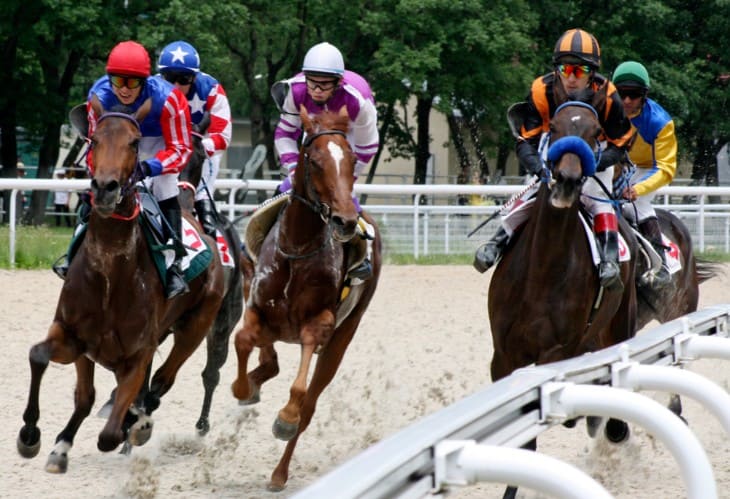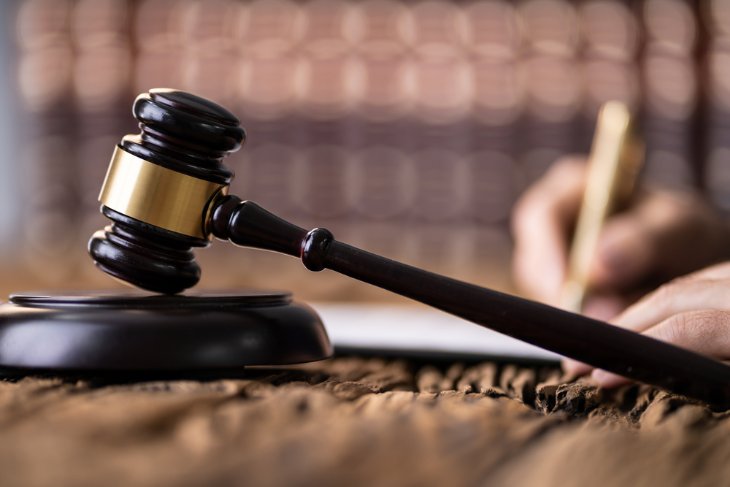In this article, we will go over the fascinating world of horse racing regulation in the UK, exploring the roles of various governing bodies and the measures they implement to uphold integrity and equine welfare. From the esteemed British Horseracing Authority (BHA) to the venerable Jockey Club, let us uncover the mechanisms that underpin this beloved sport and its commitment to maintaining the highest standards of conduct.
The British Horseracing Authority (BHA)
At the heart of horse racing regulation in the UK stands the British Horseracing Authority (BHA). As the sport's principal governing body, the BHA wields significant influence over the rules and regulations that govern the industry. Its primary objective is to maintain a fair, transparent, and safe environment for all participants, from jockeys and trainers to owners and punters.
Established in 2007, the BHA assumed the responsibilities of its predecessor, the British Horseracing Board (BHB), and expanded its scope to encompass all aspects of horse racing governance. With a blend of industry experts, stakeholders, and independent members, the BHA fosters collaboration and expertise-driven decision-making.
To fulfill its mandate, the BHA sets and enforces the Racing Rules of British Horseracing. These comprehensive regulations cover a wide range of areas, from racecourse conduct to anti-doping protocols, ensuring that participants adhere to the highest standards of conduct and sportsmanship.

The Role of the Jockey Club
While the BHA presides over the regulatory framework of horse racing, the Jockey Club plays a pivotal role in safeguarding the sport's traditions and ethical values. Founded in 1750, the Jockey Club boasts a venerable history of dedication to the well-being of British racing.
Although no longer a governing body per se, the Jockey Club has evolved into a significant force in the industry. It actively supports the BHA and other regulatory bodies by providing crucial resources and expertise to uphold the sport's integrity and longevity. The Jockey Club's focus on preserving the sport's heritage and traditions reinforces the notion that horse racing is not merely a business but an integral part of the nation's cultural fabric.
Furthermore, the Jockey Club invests heavily in various initiatives related to equine welfare, veterinary research, and racecourse development. Its charitable arm, Racing Welfare, ensures that those involved in the sport, whether human or equine, receive adequate support and care.
The Racing Rules of British Horseracing
The Racing Rules of British Horseracing form the backbone of the sport's regulation in the UK. These comprehensive rules, meticulously crafted and continuously updated by the British Horseracing Authority (BHA), cover every aspect of horse racing, leaving no room for ambiguity or exploitation.
At the core of these rules lies the principle of fairness. The BHA ensures that all participants, be they jockeys, trainers, or owners, compete on a level playing field. The rules dictate the conditions under which races are conducted, from the starting process to the finish line, minimizing any advantage or disadvantage for individual horses or jockeys.
Ethical conduct is another vital component of the Racing Rules. Strict guidelines are in place to prevent unsportsmanlike behavior, cheating, or any attempt to influence race outcomes unlawfully. This includes measures to address doping and drug usage, with thorough testing procedures to ensure that no horse enters a race under the influence of performance-enhancing substances.
Additionally, the Racing Rules cover the governance of racecourses, stewards' inquiries, and procedures for resolving disputes. The aim is to instill confidence in the integrity of the sport, assuring participants and spectators alike that the outcome of each race is determined solely by the skills, capabilities, and conditioning of the competing horses.
Licensing and Registration of Participants
To participate in the vibrant world of horse racing in the UK, individuals must undergo a rigorous process of licensing and registration. The licensing system, overseen by the British Horseracing Authority (BHA), ensures that all participants meet specific standards of competence, professionalism, and suitability.
Jockeys, the daring athletes who guide the majestic racehorses to victory, undergo a stringent assessment of their riding abilities, fitness, and knowledge of the sport. Trainers, responsible for conditioning and preparing the horses for competition, must demonstrate a deep understanding of equine care, training techniques, and compliance with the Racing Rules.
Owners, the patrons of the sport, are also subject to scrutiny. While they may not directly participate in races, their influence is felt throughout the industry. Owners are expected to meet certain financial and ethical criteria, and they play a crucial role in ensuring the well-being and welfare of the horses they own.
Registration is an essential part of the process, ensuring that each horse is accounted for and traceable. This is vital for maintaining the integrity of the sport and for monitoring the health and performance of the horses.
Equine Welfare and Safety Measures
The welfare of the magnificent creatures at the heart of horse racing is a paramount concern for all regulatory bodies in the UK. The British Horseracing Authority (BHA) and other organizations have implemented a comprehensive set of equine welfare and safety measures to protect the well-being of the racehorses.
First and foremost, the BHA has stringent protocols in place to ensure that horses are in peak physical condition before they compete. Regular veterinary examinations are conducted, and any signs of injury or illness are addressed promptly. This includes strict pre-race inspections to verify that the horses are fit to participate.
Moreover, the conditions under which races are run are carefully monitored to prevent undue strain on the horses. Track surfaces are meticulously maintained to provide optimal footing, reducing the risk of injuries. The distance and pace of each race are also tailored to suit the specific needs and capabilities of the participating horses, further enhancing their safety.
In the event of accidents or injuries during a race, a team of trained professionals is on hand to provide immediate medical attention. The welfare of the horse is of paramount importance, and any horse found to be at risk of further injury is withdrawn from the race, regardless of its potential impact on the outcome.
Beyond the racecourse, a host of measures is in place to ensure the well-being of retired racehorses. Rehoming and retraining programs, supported by the BHA and charitable organizations, aim to find suitable homes for these equine athletes after their racing careers have concluded.

Drug Testing and Doping Control
Integrity and fairness in horse racing extend beyond the participants and the track; they also encompass the crucial aspect of drug testing and doping control. To maintain a level playing field, the BHA employs a rigorous and thorough drug testing program.
Both pre-race and post-race tests are conducted on all competing horses to detect any prohibited substances in their systems. The presence of illegal drugs or performance-enhancing substances is strictly prohibited, and those found in breach of these regulations face severe penalties.
The BHA works in close collaboration with accredited laboratories to ensure the accuracy and reliability of the testing process. Transparency and integrity are key tenets of the testing system, and the results are made public to assure participants and spectators that the sport operates with complete transparency.
Furthermore, the BHA continuously monitors advancements in doping techniques and substances to stay ahead of potential threats to the sport's integrity. Educational programs are also in place to raise awareness among participants about the dangers and consequences of doping, emphasizing the importance of clean competition.
Responsible Gambling and Betting Integrity
As horse racing attracts an array of passionate spectators, responsible gambling becomes a focal point of regulatory efforts. The British Horseracing Authority (BHA) and related bodies acknowledge the need to safeguard individuals from the potential harms of excessive gambling while maintaining the integrity of betting in the sport.
The BHA actively collaborates with bookmakers and gambling operators to promote responsible gambling practices. Information about the risks and potential consequences of gambling is made readily available to punters, encouraging them to make informed decisions and set personal betting limits. Furthermore, self-exclusion programs allow individuals to voluntarily exclude themselves from betting activities if they believe it is in their best interest.
To ensure the integrity of betting in horse racing, the BHA and gambling operators work closely to identify and prevent any instances of irregular betting patterns or suspicious activities. This helps counter potential match-fixing and corruption that could undermine the authenticity of race outcomes.
Educating the public about responsible gambling and the importance of maintaining the sport's integrity is an ongoing endeavor. The BHA conducts awareness campaigns and collaborates with gambling charities to address addiction and support affected individuals.
The Appeal System and Dispute Resolution
Despite the meticulous efforts of regulatory bodies, disputes may arise in horse racing. The appeal system and dispute resolution mechanisms are in place to handle such occurrences impartially and transparently.
The British Horseracing Authority (BHA) operates an efficient and robust appeals process to address disputes and disciplinary matters. Participants have the right to appeal against decisions that they believe were made in error or were unfair. Independent panels review these appeals, ensuring that decisions are objective and based on evidence.
Additionally, stewards' inquiries are conducted to investigate incidents or rule violations during races. These inquiries aim to uncover the facts surrounding an incident, offering affected parties an opportunity to present their case and provide any relevant evidence. The stewards' decision is final unless a party chooses to appeal the decision through the formal appeals process.
The integrity of the appeal system is vital in maintaining trust and credibility within the sport. Participants and spectators alike must have confidence that any disputes or disciplinary matters are handled fairly, and justice is served without bias or prejudice.
Challenges and Future of Horse Racing Regulation
The landscape of horse racing regulation in the UK is not without its challenges. As the sport evolves and adapts to societal changes and technological advancements, regulatory bodies must remain vigilant in addressing emerging issues. One such challenge is the growing concern for equine welfare, prompting increased scrutiny and demands for even stricter measures to protect the well-being of the racehorses.
The rise of online betting platforms and global markets poses another challenge. Regulatory bodies must collaborate internationally to ensure consistent standards and prevent potential loopholes in betting integrity. The threat of match-fixing and illegal gambling operations looms, making it imperative for governing bodies to remain proactive and vigilant in safeguarding the sport's credibility.
Moreover, maintaining financial sustainability for the sport presents its own set of obstacles. While revenues from betting and commercial partnerships are crucial for funding horse racing, a balance must be struck to avoid over-reliance on these sources, which may compromise the sport's independence and decision-making.
The future of horse racing regulation in the UK lies in embracing innovation and technology while staying true to its traditional values. Harnessing data analytics, artificial intelligence, and other advancements can aid in enhancing equine welfare, predicting injuries, and improving racecourse safety.
In Conclusion
The regulation of horse racing in the UK is a complex and multifaceted undertaking. From the British Horseracing Authority to the Jockey Club and other governing bodies, their collective efforts ensure the sport's integrity, fairness, and equine welfare. As we look to the future, a collaborative approach to tackle challenges and embrace innovations will fortify horse racing's position as a beloved tradition, cherished by enthusiasts, participants, and spectators alike. With responsible governance, a commitment to excellence, and a passion for the sport, horse racing in the UK will continue to gallop ahead into a promising and inspiring future.








